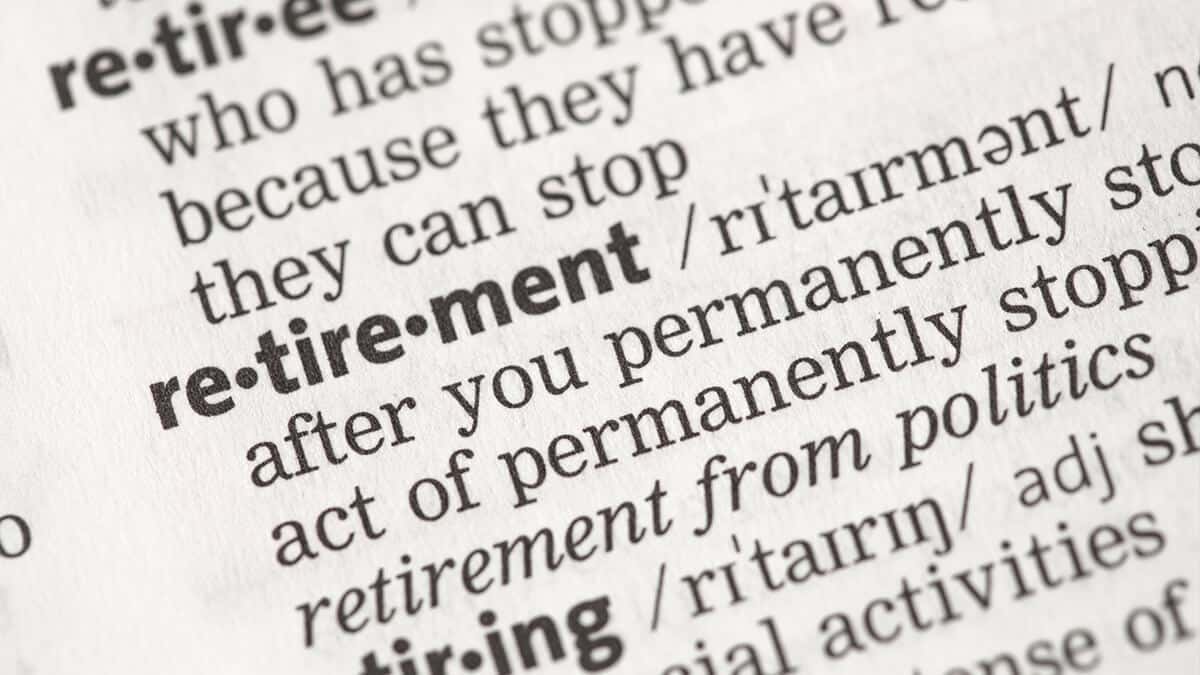In this guide
Working out whether you have met a condition of release to access your super can be tricky. This is because there are strict rules around when and under what circumstances you can withdraw money from super, and everyone’s situation is different.
One of the easiest conditions of release to comply with is to turn age 65, but the most commonly misunderstood condition of release is ‘retirement’. There are two ways to meet the retirement condition of release, which are:
- Reaching preservation age and retiring permanently from work
- Cessation of gainful employment on or after your 60th birthday.
We have collated a list of common questions around the retirement condition of release and potential issues to consider. Please note that this is general information only. You should consult your super fund or a financial adviser to help with your specific situation.
First, it is important to understand the definition of retirement. As defined in the SIS Regulations, in the first instance this will depend on the member’s age.
Being under 60 but reaching preservation age
In the case of a person who has reached their preservation age but is under the age of 60, the retirement condition of release is satisfied where:
- The person ceases gainful employment (which could have occurred at a time prior to preservation age)
- The super fund’s trustee is satisfied that the person has no intention to become gainfully employed in the future (that is, not working more than 10 hours per week).
Being above age 60
In the case of a person who has reached age 60, the retirement condition of release is satisfied where:
- The person ceases a gainful employment arrangement, and either:
- The person attained age 60 on or before the date they ceased employment, or
- The super fund’s trustee is satisfied that the person has no intention to become gainfully employed in the future (that is, not working more than 10 hours each week in that employment arrangement).
People over 60 can therefore meet the retirement condition of release by leaving an employer after their 60th birthday (regardless of whether they intend to work in future), or by retiring permanently from gainful employment (regardless of their age when they ceased work).
If a member who is 60 or over ceases one employment arrangement but continues in another employment arrangement, they can access super benefits accumulated up to the date they left the employer. All super contributions and associated investment earnings after that date cannot be accessed until another condition of release is met to access those super benefits. Note that funds may apply stricter rules to access your savings than is required by law.
Frequently asked questions
Question 1
a) After reaching preservation age or after turning 60, can I access super by reducing working hours to less than 10 hours per week in the current employment role?
As there is no cessation of employment, the reduced number of hours does not impact that. Therefore, the condition of release has not been met.
b) What if I have changed jobs numerous times throughout my career. Will I then meet a retirement condition of release?
The cessation of employment can occur either prior to or after reaching preservation age and if as the super fund’s trustee is satisfied that you do not have an intention of working more than 10 hours per week, then a condition of release can be met. However, it would be wise to retain proof or evidence of being previously gainfully employed and then ceasing that role.
Question 2
Can I go back to work if I permanently retired once?
Yes. While you must genuinely intend to retire when you make the declaration, this does not mean you can’t be gainfully employed again in the future. What matters is your genuine intention when making the declaration to the trustee. So, it is possible to go back to work. However, all new super contributions and associated earnings cannot be accessed until another condition of release is met.
Question 3
I have never been gainfully employed and have reached preservation age; can I access my super?
One of the requirements to meet the retirement condition of release is to cease gainful employment. If you have never been gainfully employed, the condition has not been met. You will have to meet another condition of release such as reaching age 65. Alternatively, you could find gainful employment and retire from it after a short time to meet the retirement condition of release.
Question 4
I am a self-employed person who reached preservation age and ceased my recent contract work while I search for another contract. Have I met a condition of release?
No. Although you have reached preservation age, for genuinely self-employed people gainful employment involves your entire self-employment arrangement. Therefore, each contract forms part of your overall arrangement. The retirement condition of release will be met when your entire self-employment arrangement ends (for example, your business is wound up).
Question 5
I am over 60 and work two jobs. If I cease one job but continue the other, can I access my super?
Yes. As one employment arrangement has ceased and you are above age 60, you have met a condition of release. However, as stated before, you can access super benefits accumulated up to the date you stopped working one of the jobs. All future super contributions and earnings related to the other employment cannot be accessed until another condition of release is met.
It is important to remember that your fund may apply stricter rules to access your super than the law requires. Although the law would permit you to access your super, your fund may still refuse, particularly if you have a defined benefit arrangement.
Question 6
I have reached age 60 and have agreed with my employer to change my role from being a full-time executive manager to a part-time role working 20 hours a week. Can I access my super?
This can be a tricky situation and it is best to confirm this with your super fund. While your role at the company is changing, there is an agreement being made with the company that you will continue to be gainfully employed by them in the future. As you are unlikely to have ceased a gainful employment arrangement, you have probably not met a retirement condition of release.
Question 7
I have reached age 60, planning to take one year’s worth of long-service leave and then ceasing my employment. Will I meet a condition of release the day I start taking my long-service leave?
While you will not be working technically, you will still be receiving employment benefits in the form of long-service leave, salary or other payments for one year. As your overall employment arrangement has not ended, you will not be considered to have met a condition of release when you started your long-service leave.








Leave a comment
You must be a SuperGuide member and logged in to add a comment or question.